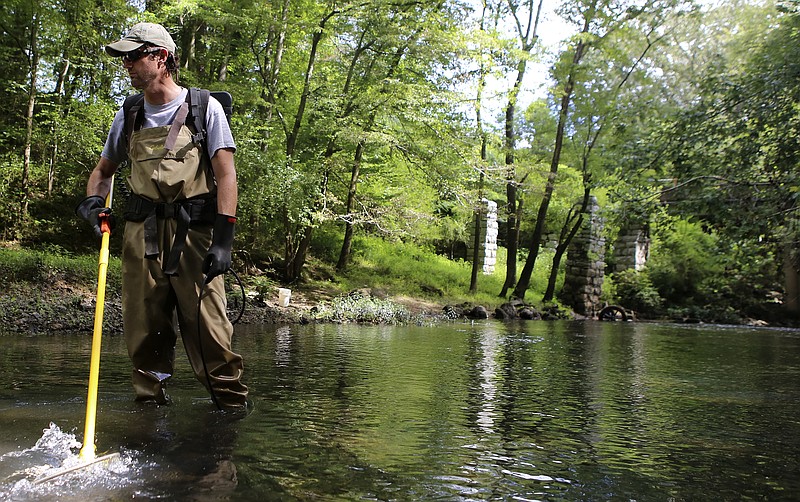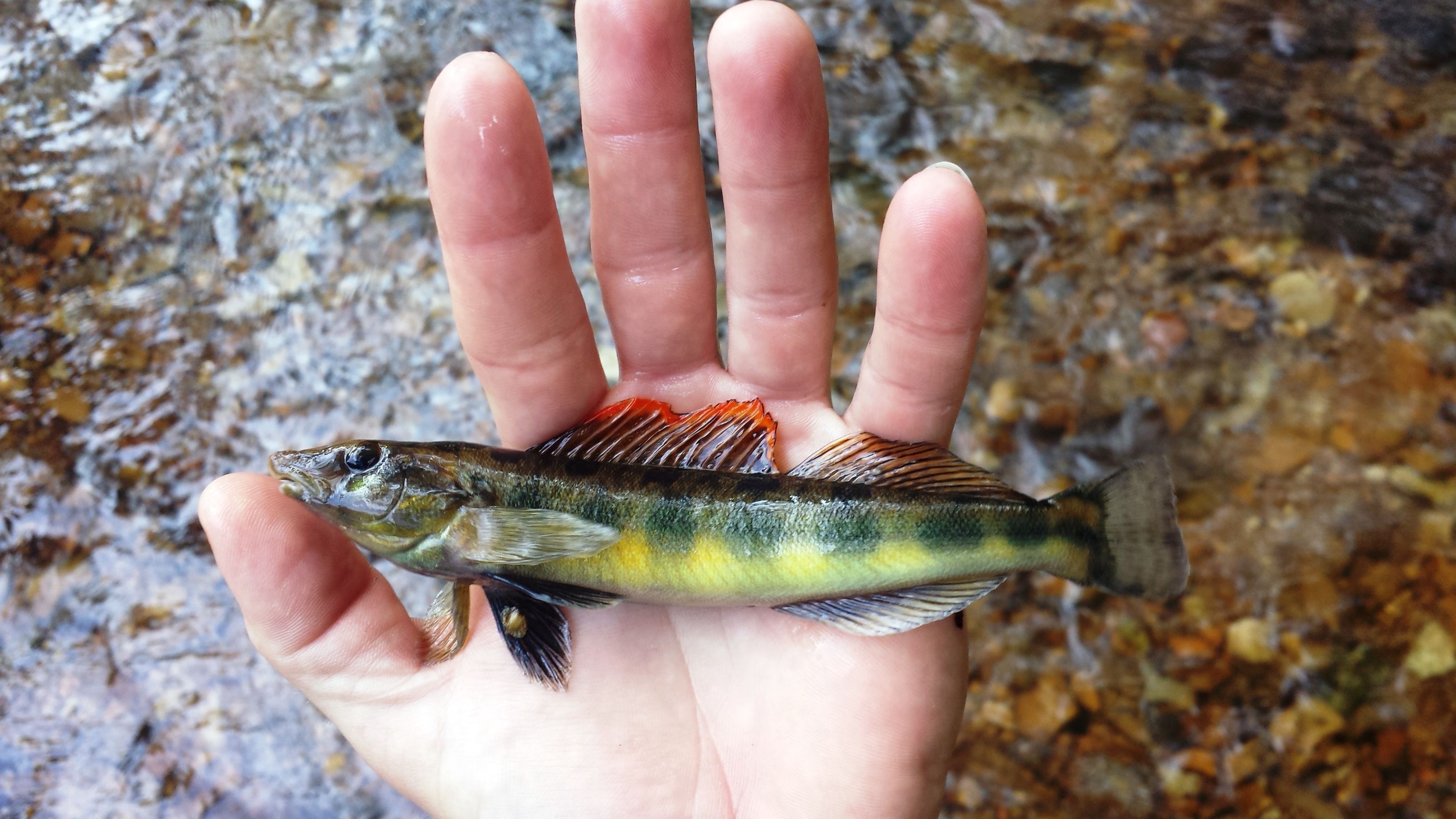Earlier this fall, Jeff Simmons gained a fair amount of attention in the highly specific world of aquatic life.
Simmons, a McCallie School graduate who lives on Signal Mountain, has been a TVA aquatic biologist for the last 11 years. He was recently credited with discovering a new fish species - the Tennessee logperch - which lives in the Duck River.
When asked about discovering the fish, Simmons made sure to fine-tune the question.
Simmons said he and Yale professor Tom Near followed up on a previous genetic study that initially suggested the Duck River populations of the Blotchside logperch, Percina burtoni, may be different. The previous study was published in 2006 by Anna George, director of the Tennessee Aquarium research institute here in Chattanooga.
"It's more 'describe' than 'discover' if you want to know the basic difference," Simmons said Monday. "We did the follow-up on George's original research by examining all known specimens in museum collections and by collecting a bunch of additional specimens from all known populations. Additional genetic analyses along with counting things like scale rows, fin rays, and noting differences in color and pigmentation, solidified that this was a new species separate from the Blotchside logperch.
"Tom and I started talking about this in 2013 and decided to move forward on this. We really worked hand in hand."
Simmons, more than most, would know the difference between discovering a new species of fish and describing one.
No, it's not so much he went to the University of Tennessee and got his degree in wildlife and fishery science. It's not even his master's in biology from Tennessee Tech or that research in river life.
It's not even that his oldest son is named Finn. (When asked if that was more Huckleberry or dorsal, Jeff laughed and said, "I guess that's debatable. Maybe in my mind it may be a little more dorsal, but it's a unique name and we liked it.)
No, the main reason the fishery expert Simmons is an expert on the finer points between "discover" and "describe" is because he's been on the other side of the hook.
In 2010, Simmons discovered a new species of crayfish. It's known as the Tennessee bottle brush crayfish because of its antenna that resemble, for a lack of a better word, pipe cleaners.
Simmons discovered it, but Guenter Schuster of Eastern Kentucky University and Chris Taylor of the Illinois Natural History Survey described the much larger version of the genus of crayfish they were studying.
This species name? Well, Barbicambarus simmonsi of course, and you guessed it. The last part of that was a tip of the fishing cap to Simmons.
"It was quite an honor, especially at that point in my career, to have a species named after you," Simmons said. "(Guenter and Chris) have been mentors to me as I have continued my competences with crayfish taxonomy."
The work that all of these folks do finding new species and studying their lives and habits give us the best chance to protect them.
Simmons could not even guess at the number of species that have died off before we ever knew them. But, as he said, as long as TVA is invested in finding these species, he is happy to discover or describe whatever comes next.
"That's one of the reasons I came to work at TVA," Simmons said, "to be able to conduct this kind of work across the region and not be bound by state lines.
"Until we complete these kinds of projects, if the species stays undescribed, there is no attention or legal conservation status."
It's important work, no matter who discovers it or describes it.
Contact Jay Greeson at jgreeson@timesfreepress.com and 423-757-6343.


